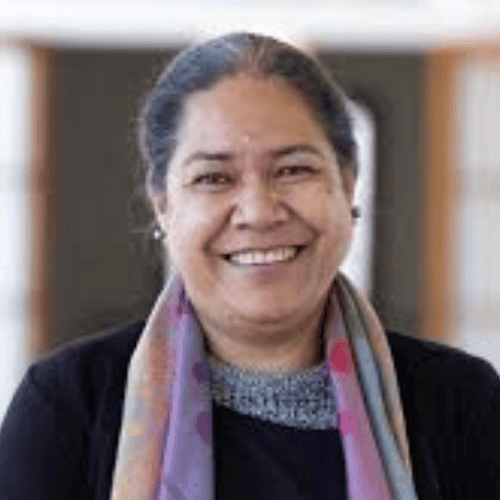
DTP alumna Emeline Siale Ilolahia is the Executive Director of Pacific Islands Association of Non-governmental Organisations (PIANGO) which coordinates and supports civil society organisations across 24 countries and territories across the Pacific.
PIANGO has a special focus on enabling communities and citizens to participate in decision-making processes in the Pacific promoting an inclusive policy-making culture that reflects the diverse needs of communities. The right to participation in decision making is a critical human right.
Siale’s approach to advocacy is characterised by her commitment to human rights, inclusivity, collaboration, and social justice. Through PIANGO, Siale brings together diverse stakeholders to address pressing challenges facing the Pacific communities, from climate change, human rights violations, protection of Indigenous lands, gender inequality and food security.
Siale is highly appreciative of DTP’s contribution in empowering and fostering collaboration among human rights and environmental rights defenders in the Pacific region.
“DTP has been instrumental in building solidarity among human rights defenders in the Pacific region. It brings together like-minded individuals who may have felt isolated in their work and provides them with a supportive network of peers who understand the challenges they face.”
Siale believes a key contribution of the DTP training for her and other participants is the emphasis on using the art of dialogue and persuasion to achieve advocacy goals.
“DTP encouraged us to engage with a diverse range of stakeholders, even those who may not initially be receptive to our message. I appreciate that the training emphasised the importance of persuasion through dialogue for effective policy change, rather than simply preaching. In other words, the training challenged us to step out of our comfort zones and encouraged us to engage with those who may hold different perspectives.”
In her previous role as Executive Director of the Civil Society Forum of Tonga, Siale was instrumental in bringing together and supporting coalitions working on issues as diverse as ethical leadership, women’s access to finance, women’s leadership and political participation, and concerns about deep-sea mining.
In recognition of her exceptional contributions to local leadership efforts in Tonga, Siale was awarded the inaugural Jose Edgardo Campos Collaborative Leadership Award in Washington DC in 2016.
Siale thinks that DTP is making a lasting change in the region and the positive impact of DTP persists beyond the training sessions.
“When we leave the program, some of us continue our advocacy work in our communities, while others may have access to political spaces where they can amplify our collective voice. In a way DTP creates a ripple effect of change that extends far beyond the duration of the training.”
Looking ahead, Siale envisions a Pacific region where every individual enjoys equal rights, opportunities, and access to sustainable development. Siale said that in future DTP training should give priority to developing a program for the training of trainers in the Pacific.
“This training approach will allow for a more contextualised and localised knowledge dissemination that is essential for addressing the unique challenges faced by human rights defenders in the Pacific.”
DTP acknowledges the traditional custodians of the land on which we work, the Bedegal people of the Eora Nation. We recognise their lands were never ceded, and we acknowledge their struggles for recognition and rights and pay our respects to the Elders – past, present – and the youth who are working towards a brighter tomorrow. This continent always was and always will be Aboriginal land.
Aboriginal and Torres Strait Islander peoples should be aware that this website contains images or names of people who have passed away.
DTP acknowledges the traditional custodians of the land on which we work, the Bedegal people of the Eora Nation. We recognise their lands were never ceded, and we acknowledge their struggles for recognition and rights and pay our respects to the Elders – past, present – and the youth who are working towards a brighter tomorrow. This continent always was and always will be Aboriginal land.
Aboriginal and Torres Strait Islander peoples should be aware that this website contains images or names of people who have passed away.
Privacy Policy | Terms of Use | Disclaimer | Policies
© 2022 Diplomacy Training Program | ABN 31 003 925 148 | Web Design by Studio Clvr